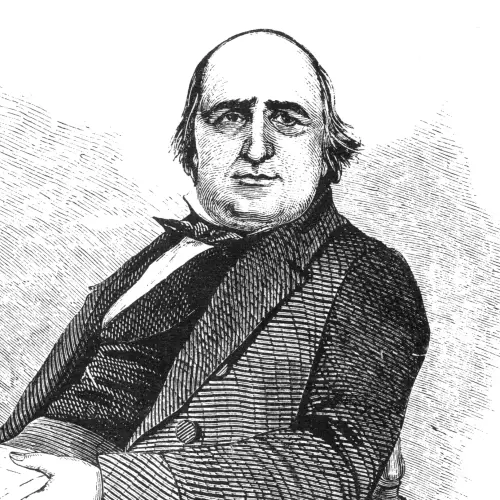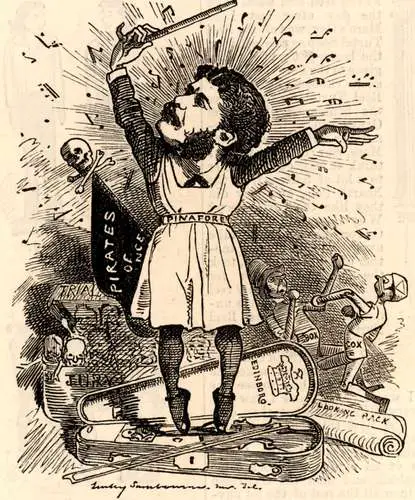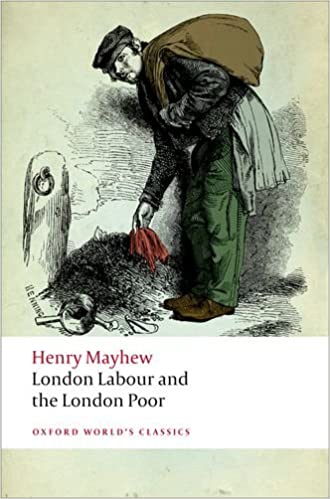Henry was an advocate for the reform, author, playwright, and journalist. Although his most famous works were journals. London Labour and London Poor was very popular at that time and known to be an influential work. Charles Dickens was also influenced by this. In the late 40s, Henry published numerous articles in The Morning Chronicle.

Early Life of Henry Mayhew
Henry Mayhew was born on 25 November 1812, in London. His father, Joshua Mayhew, a solicitor sent him to school at Westminster, studied there for a while. After he was fed up with studying, he ran to serve East India Company. He got a job of midmanship on a boat to India (Calcutta).
Henry spent a few years roaming around and came back in 1829. Then, in Wales he studied law for a while and left this also, to become a journalist. He edited for Figaro in London (1831) and contributed to The Thief (1832). He kept running from place to place due to the debt he was in, mostly he ran away to a town called Erwood. There he stayed in The Erwood Inn.
Plays in Paris
Henry was used to running from creditors, one place to another. In 1835, he ran away to Paris this time. He spent more than 10 years there in the company of some writers, including William Thackrey. He did some writing there including pieces of literature and plays. As his literature, written in Paris, did not gain fame. His playwriting got some appreciation and became famous.
Henry managed a theatre called Fitzroy Theatre and this theatre premiered his plays. The name of the theatre was later changed to the Scala.
His famous plays were:
But, However: A Farce, in One Act was a comic drama played many times in the theatre.
The Wandering Minstrel was a play about a wandering singer who played Villikins and his Dinah, an old folk song. This play became so successful and famous that it remained favorite for a long time.
Both of these plays gained more fame and were successful than his Figaro in London.
How Henry paid off his debts and became financially secure? (The Punch Magazine)
Henry co-founded a magazine called The London Charivari on 17th July 1841 and later changed the name to the Punch. He was the editor of that magazine alongside Mark Lemon. It was a big work and needed many more writers. So Henry hired some writers.
Punch became a huge success soon, mainly due to its satirical content. People loved it and in its early years, it was selling more than 5000-6000 copies per week. Although, to run the publications and cover all the expenses, around 10000 copies were needed to be sold per week.

As the magazine was facing financial loss, Henry sold the magazine to Bradbury and Evans in December 1842. First Henry resigned from his post as editor but later, Mark Lemon was as the editor, Henry took “suggestor in chief”. But this wasn’t for a long time, he soon broke off his connections with the magazine, his last article published in February 1875. Although Horace, Henry’s brother, had a seat on the board and he remained there until his death.
Punch was founded in 1841 and till the year 1992, it was open and running. Soon it lost its satirical touch and was shut down in 1992. It was reopened in September 1996, but due to financial loss, closed-down in May 2002 and is closed till now.
Henry’s life after the Punch
Henry worked for Illustrated London News in 1842. He was debt-free and financially stable by this time because of the Punch. So he settled with Jane Jerrold, his friend, Douglas Jerrold’s daughter.
After the Punch, Henry founded another magazine, it was a railway magazine called Iron Times. He lost a lot of money in this magazine. In 1846, he had to appear in the Court of Bankruptcy, becoming financially unstable again.
Most-known and famous work of Henry
London Labour and the London Poor :
Henry wrote a large number of articles in 1849-1850, for The Morning Chronicle. It was a rough decade for London mainly because of cholera spread across the country. Henry wrote about the poor people in this magazine, including market traders, laborers, prostitutes, street entertainers, etc.

Henry was in the streets interviewing all these people. He described, in a very detailed and rich manner, how the poor people were living there. Here’s a text from his work:
“Little boys, holding three or four onions in their hand, creep between the people, wriggling their way through every interstice, and asking for custom in whining tones as if seeking charity. Then the tumult of the thousand different cries of the eager dealers, all shouting at the top of their voices, at one and the same time, is almost bewildering. “So-old again,” roars one. “Chestnuts all’ot, a penny a score,” bawls another. “An ‘aypenny a skin, blacking,” squeaks a boy. “Buy, buy, buy, buy, buy– bu-u-uy!” cries the butcher. “Half-quire of paper for a penny,” bellows the street stationer. “An ‘aypenny a lot ing-uns.” “Twopence a pound grapes.” “Three a penny Yarmouth bloaters.” “Who’ll buy a bonnet for fourpence?” “Pick ’em out cheap here! three pair for a halfpenny, bootlaces.” “Now’s your time! beautiful whelks, a penny a lot.” “Here’s ha’p‘orths,” shouts the perambulating confectioner.”
Who liked and who didn’t?
Many people loved this work, including reformers, radicals, and socialists. Their desire for all this made Henry published all the articles he wrote in two years, as a series of books. The book was called London Labour and the London Poor. In 1851, Henry published three volumes of this book. People loved this book too and how he described the social problems.
Henry categorized poor people into three types. Here’s a text from his first volume.
“I shall consider the whole of Metropolitan poor under these three seperate phases according as they will work, they can’t work, and they won’t work.”
Although many people liked this series of books, some didn’t, including right-wing press and some street traders from London. They didn’t appreciate the way Henry described them.
Henry released two more volumes of this book years later. In 1862, Henry published the fourth volume The Criminal Prisons of London, with John Binny. He published the fifth volume London Characters published in 1874
Death
Henry Mayhew died in 1887, July 25th. His burial took place at Kensal Green.
Legacy of Henry Mayhew
Many writers appreciated and embraced Henry’s work. Many writers and socialists were influenced including, F.D Maurice and Thomas Hughes.
A script based on Henry’s work was released in 1990, The Fool. Henry appeared in a documentary called London (2004), played by Timothy West. A play called A Chaos of Wealth and Want (2012) also had his character, played by David Haig.
Terry Pratchett released a novel in 2012, Dodger. The novel included Henry and his wife as fictional characters.